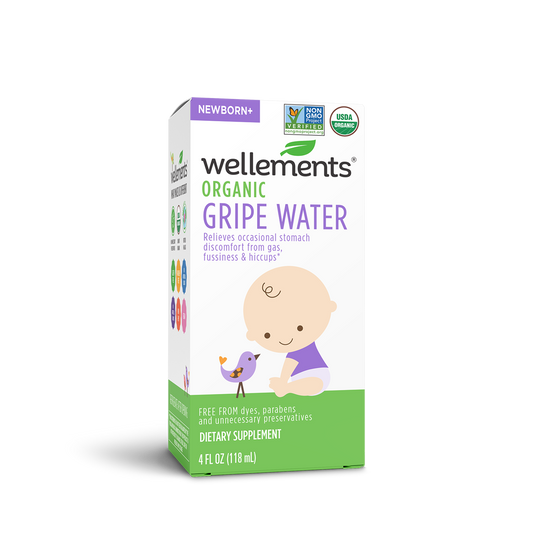My Baby Won’t Stop Crying, What Should I Do?
| updated:Share

You know that your baby will cry. And you may have learned that crying, in some cases, is a sign of a healthy, thriving baby. In fact, it’s the way your baby can communicate their wants and needs with you. You may also have noticed that their cries change depending on the situation.
But maybe your baby won’t stop crying, and you’re worried. You might be asking yourself two questions that are common among most parents:
“What if my baby has colic?” and “What are the signs of colic?”
After all, you don’t want your baby to be in pain. And you also want to ensure they receive the best medical care possible if anything is a concern. But what is colic and how, as a parent, can you identify it?
4.4 /
5.0
(64)
64
total reviews
Gripe Water
Sale price
$12.49
Reasons your baby may be inconsolable
First, let’s talk about the different reasons why your baby may be crying. When it comes to your baby, not all cries are the same. But, of course, you want to identify the reason your baby won’t stop crying. Many parents are surprised to learn that there could be many reasons for this.
- They’re too hot or too cold – even a few degrees can make all the difference in the world. Try adjusting the temperature slightly to see if it’s contributing to your baby’s crying.
- They’re incredibly sleepy – an overtired baby can be pretty inconsolable. In fact, once they reach this point, they might also have a difficult time falling asleep – no matter how much they cry. Identifying your child’s sleep patterns and establishing a bedtime routine can help with this one.
- They may have an infection – some babies and toddles may develop infections that are difficult to detect by a non-professional but that causes them discomfort. If you suspect that this may be the case, seek a medical professional’s advice right away.
- They’re having tummy trouble or have signs of colic – as a parent, you may have heard others talk about colic. And today, we’re going to explore the signs and symptoms of colic and how you can help your little one if they do have colic.
What is colic and how does it affect my baby?
Colic is crying that goes beyond the typical hunger pains or dirty diaper blues. It is often more intense and more frequent than the normal cries you hear from you child. It also appears to have no cause and might leave you wondering what’s going on. At the same time, colic is common in children and nothing to panic about.
However, the true cause of colic is poorly understood. From digestive problems to migraines, researchers have debated the subject at length. However, much of the research has focused in on the digestive system and its role in the body.
How can I tell if my baby has colic?
We like to go by the “rule of three”! If your baby cries for more than three hours per day, for more than three days per week, and for longer than three weeks, chances are, your little one has colic.
How can I help my baby if they have colic?
- If you believe your baby has colic, what should you do? Don’t worry, because we have answers for you!
- Lay your baby down on their back in a relaxing place
- Give them a baby massage
- Lightly heat a water bottle and place it on your baby’s stomach
- Give them a lightly warm bath to sooth them
- Give Wellements Organic Gripe Water a try!
- Visit your healthcare professional for a medical opinion
If you suspect your baby has colic, your first step should be to call your trusted healthcare provider – that’s a must! If they agree and think your baby has colic, they will likely recommend trying Gripe Water. Gripe Water is an herbal remedy that helps ease your little one’s occasional stomach discomfort and gas. Wellements makes two different kinds of Gripe Waters – Organic Gripe Water and Organic Nighttime Gripe Water. Find the one that works best for your baby. After all, colic is no fun for anyone!



